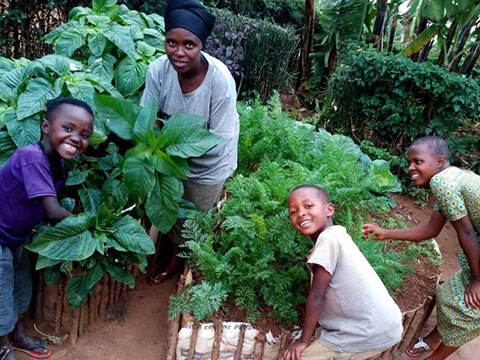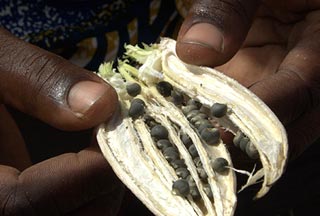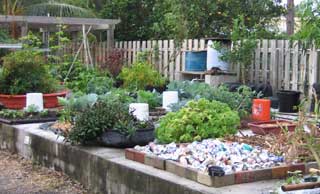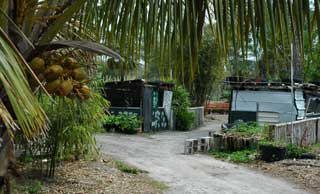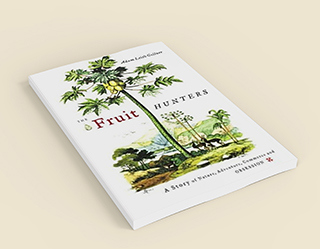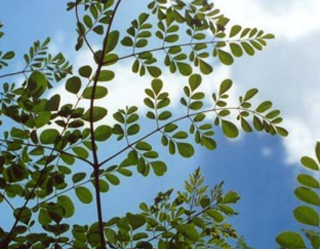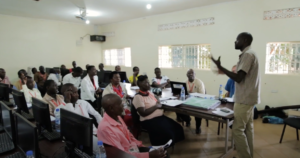In 2022, Susan Smith’s garden saw its greatest yield to date, producing beets bigger than softballs, local mustard greens, tomatoes, eggplants, Swiss chard, and string beans, all sprouted from ECHO seeds given to her by a friend.
Of her 20 papaya trees, 15 produced green, yellowish, and orange sweet fruit. She had so many papayas she didn’t know what to do with them, so she began giving them away. People came to her from around town to ask about her papaya trees.
Water makes all the difference between a flourishing harvest and a failed one in the Horn of Africa. That year, there was more rain than usual, allowing Susan’s garden to produce an abundance — enough to share with her community.
Susan and her husband, Robert, have served in East Africa for many years, focusing primarily on introducing drip irrigation and managing a women’s cooperative where local women are taught how to sew.
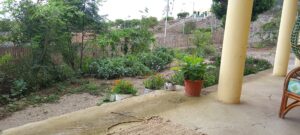
After their area experienced the worst drought conditions in 40 years, shriveled crops, starving livestock, food shortages, and water insecurity all became commonplace.
On top of this, Susan says, many people in the community are traditionally nomadic, so they didn’t have much experience with farming. As Susan grew her gardening knowledge in the unpredictable East African climate, she welcomed her community to learn alongside her. Her flourishing experimental garden became a place of education and collaboration, where her community could learn about drip irrigation, growing crops, composting, and saving seeds.
“I hope it can be encouraging to other people who are trying to experiment,” she said. “I found several women gardeners trying to garden for the first time in their life, so I’ve been trying to help them, but the major obstacle is water.”
After seeing so much success with her sewing program in helping divorced or widowed women, and young girls without fathers or an education, she began to dream about using gardening toward the same ends. “It would definitely help these households because a lot of women are a second wife, or they’ve divorced, and they struggle to make ends meet,” she says.“For parts of the year, we could produce our own food. We import almost everything from outside. The only thing local we have is salt and fish from the sea, camel, and goat meat.”
Today and every day, locals purchase papaya imported from Ethiopia. If the community could learn methods for harvesting papaya, it could mean a brighter future for women and girls in her area. As the government continues to navigate better ways for people to store water, Susan dreams of equipping women with sustainable gardening techniques. But she won’t let the water challenges stop her from sharing and experimenting with what she has.
Susan regularly meets women who want to learn more about farming. Once she shares what she knows, she encourages them to pass that knowledge to someone else, calling it “domestic discipleship.” Susan’s successes in planting ECHO’s seeds and using drip irrigation practices are beginning to take root in her East African community.
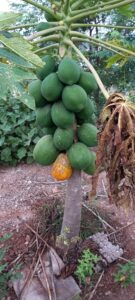
Plant seeds of change today! Give here to make trainings possible in more communities through partners like Susan.
ECHO provides hope against hunger around the globe through agricultural training and resources. As a Christian technical networking and resourcing organization, ECHO builds a diverse, global network and serves that network by sharing validated contextualized agricultural options with technical excellence. ECHO’s goal is to serve and empower its network members to advance food security and sustainable livelihoods. ECHO’s North American Regional Impact Center is located in Fort Myers, Florida with a global presence through four Regional Impact Centers in the USA, Thailand, Tanzania, and Burkina Faso. For more information about ECHO call 239-543-3246 or visit echonet.org or ECHOcommunity.org
